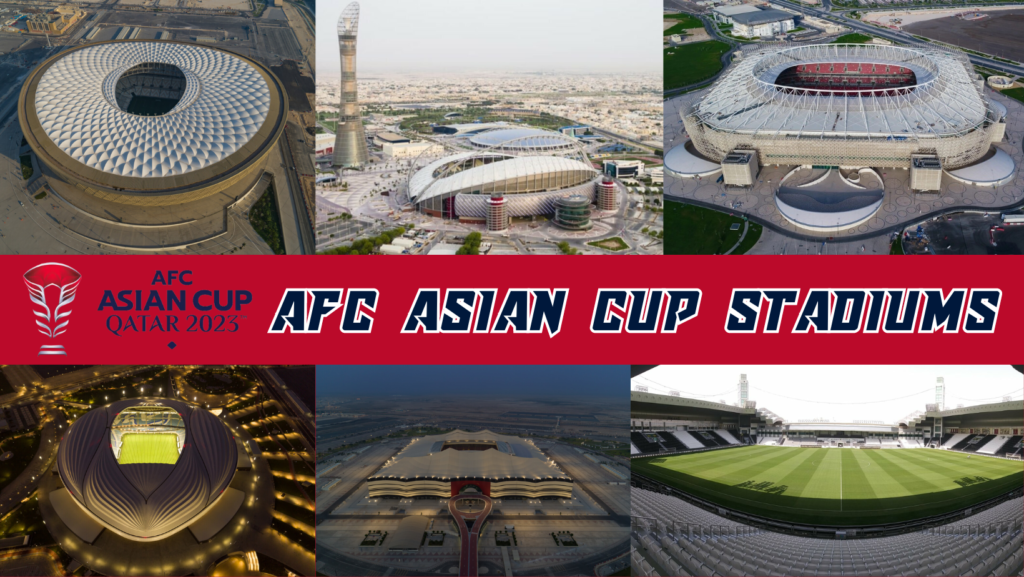
Stadiums are always a major point of attraction in any tournament. Over the years, fans have experienced several iconic venues across various sporting events. The 1994 FIFA World Cup in the USA holds the record for the highest attendance of any World Cup, with over 3.5 million spectators across 52 games. The Brazil-Italy final at the Rose Bowl Stadium in Pasadena, California, with a packed crowd of 94,000, remains an iconic image. The ambiance of such stadiums adds to the beauty of any game.
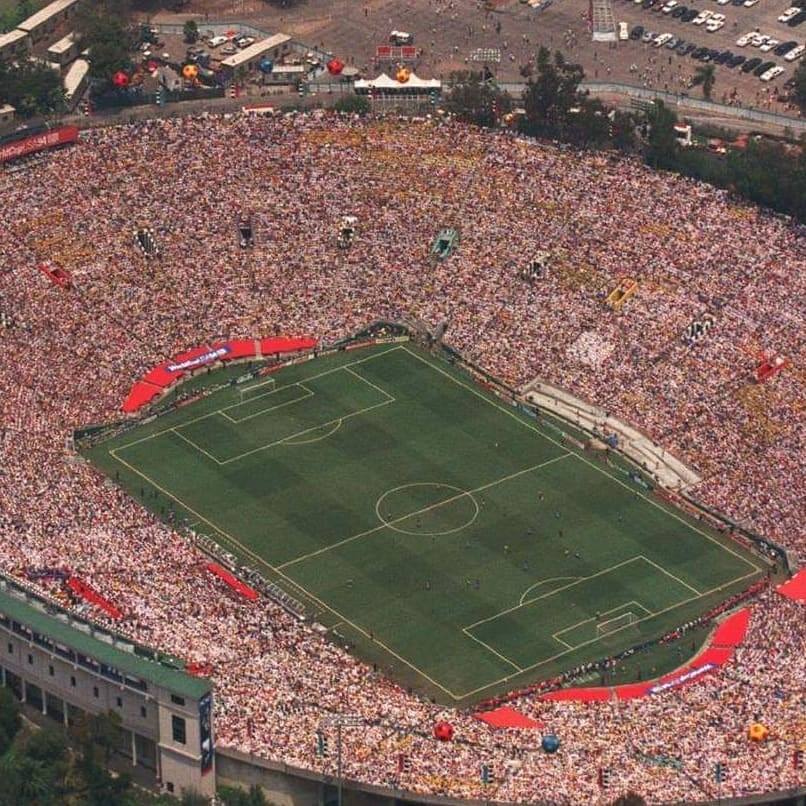
According to BBC reports, the highest attendance for an official football match is a staggering 173,850, recorded during the 1950 World Cup final when Uruguay beat Brazil at the iconic Maracanã stadium. In those days, stadiums lacked seating arrangements, and spectators stood on the galleries.
The 2013 Boxing Day Ashes at the Melbourne Cricket Ground had a record crowd of 91,092 on the first day. Another example of an iconic ground, host to a crowd short of a lakh by a few thousands.
If we talk about club football, stadiums hold a special emotion for the million stakeholders of the club across the globe. “Welcome to Old Trafford, It’s the Theatre of Dreams…” – the famous lines in Manchester United’s theme song describing their home ground, in the words of Sir Bobby Charlton, captures the emotional connection fans have with the venue. Arsene Wenger, the former Arsenal boss, credited much of Liverpool’s European success to Anfield, describing it as “the hardest place in Europe” for away teams in an interview to BeIN Sport. “It’s the only place now you can take a corner and shake hands with the supporters!” he said.
Kolkata football fans still cherish the memory of the historic 1997 Federation Cup semifinal, the Kolkata Derby, with a record attendance of 131,000 at the Salt Lake Stadium. This match holds the record for the highest attendance at a sporting event in Asia. Beyond Bhaichung Bhutia’s hattrick securing a 4-1 win for East Bengal, the sea of supporters in the stands and on the terraces remains etched in the memory.

All we can say, as much as we enjoy the on-field action, stadiums add a separate value to the whole experience for everyone involved in the act.
Turning to Qatar, the host of the upcoming AFC Asian Cup and the 2022 FIFA World Cup, the country showcased some beautiful stadiums to the world. For the first time ever in a FIFA World Cup, there were air-conditioned stadiums. The discreet Stadium 974, constructed from 974 shipping containers in the eastern part of the capital, with the area code 974, was a 40,000-seat temporary facility that was dismantled after the tournament. This marked a historic first, as it was the first instance of a World Cup stadium being taken down immediately after the final match.
As Qatar prepares to host the showpiece international event in Asian Football, let’s explore the different venues that will host matches from January 12th to February 10th.
Lusail Stadium:
Capacity: 88,000
Location: Doha
Matches: First group match (including the opening ceremony), Final
The 88,000-seat Lusail Stadium, symbolising Qatar’s ambition and enthusiasm for showcasing West Asia globally, will host the opening match of the AFC Asian Cup Qatar 2023 on January 12 between defending champions Qatar and Lebanon in Group A. Having previously staged the FIFA World Cup 2022 final, the iconic Lusail Stadium will again take centre stage for the Asian Cup Final on February 10. As one of the largest venues in AFC Asian Cup history, it follows Tehran’s Aryamehr Stadium (100,000 capacity) from the 1976 final and Jakarta’s Gelora Bung Karno Stadium (88,083 capacity) in 2007. Situated approximately 20 kilometers north of Doha in the city of Lusail, the stadium was officially opened on September 9, 2022, featuring the Lusail Super Cup match.
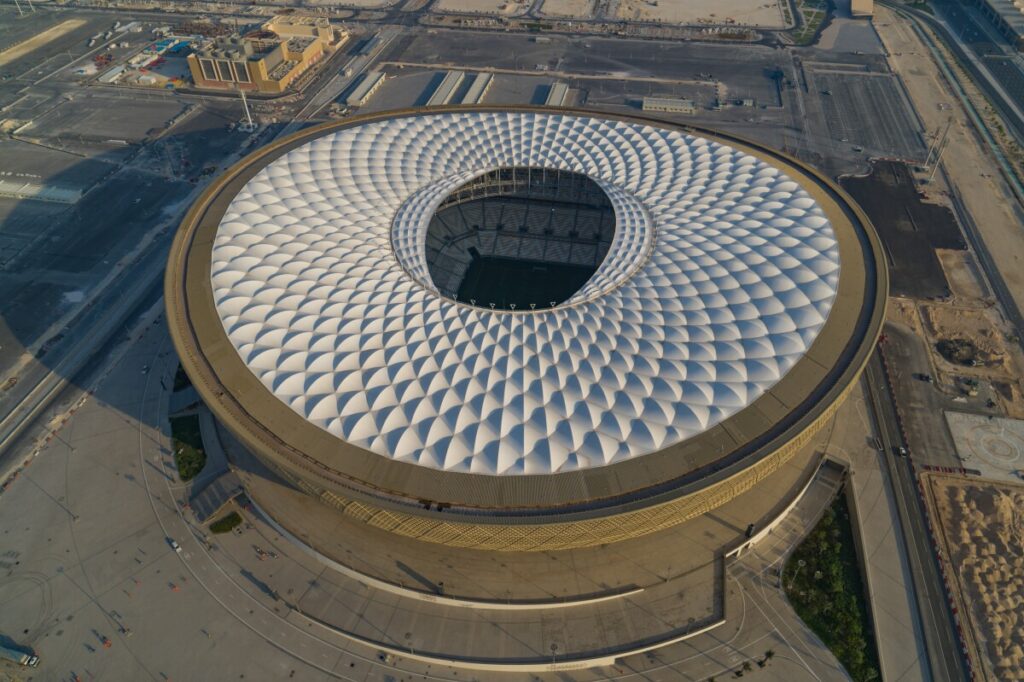
Khalifa International Stadium
Capacity: 45,857
Location: Al Rayyan
Matches: 5 Group Matches, 1 of Round 16
Qatar’s national stadium, the Khalifa International Stadium, was the venue for the AFC Asian Cup 2011 final. In May 2017, the stadium underwent a grand reopening, marked by a spectacular ceremony and the hosting of the Amir Cup final. Positioned at the heart of all AFC Asian Cup Qatar 2023 venues, this stadium holds a crucial role in the tournament, benefiting from advanced transport systems and a unique geography that make it the most well-connected international football competition ever.
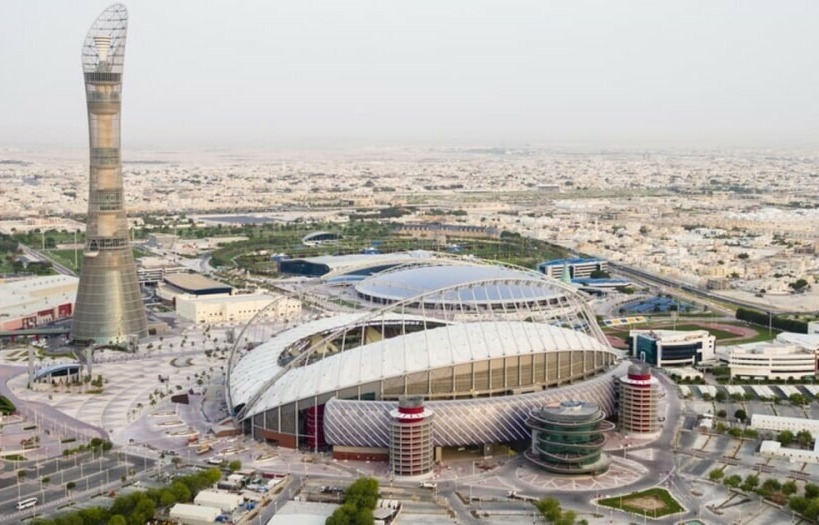
Ahmad Bin Ali Stadium
Capacity: 45,032
Location: Al Rayyan
Matches: 4 group matches, 1 Round of 16, 1 Quarter-final, 1 Semi-final.
Qatar’s Ahmad Bin Ali Stadium, situated in Al Rayyan, welcomed the world on December 18, 2020, with a stunning debut featuring the Amir Cup final. Al Rayyan, known for its rich traditions and local culture, is home to the popular football team Al Rayyan Sports Club, fostering a close-knit community deeply devoted to the team. Constructed primarily from recycled material from a previous stadium, Ahmad Bin Ali Stadium hosted FIFA World Cup Qatar 2022 matches up to the quarter-final stage.
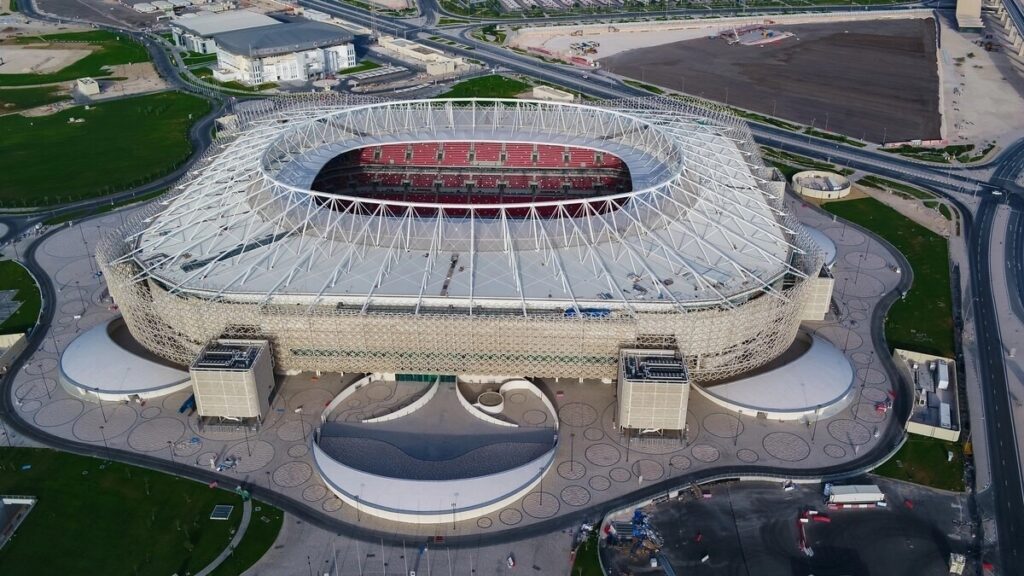
Al Janoub Stadium
Capacity: 44,325
Location: Al Warkah
Matches: 4 group matches, 1 Round of 16, 1 Quarter-final
In Al Wakrah, the 40,000-seat Al Janoub Stadium, inaugurated on May 16, 2019, hosted the Amir Cup final where Al Duhail SC triumphed over Al Sadd. A packed house also witnessed a Gulf Cup semi-final between Qatar and Saudi Arabia in December 2019. Al Wakrah, one of Qatar’s oldest continuously inhabited areas, with a history in pearl diving and fishing, inspired the stadium’s design based on traditional dhow boats. Al Janoub Stadium will be in action until the quarterfinals, offering an enjoyable experience for fans.
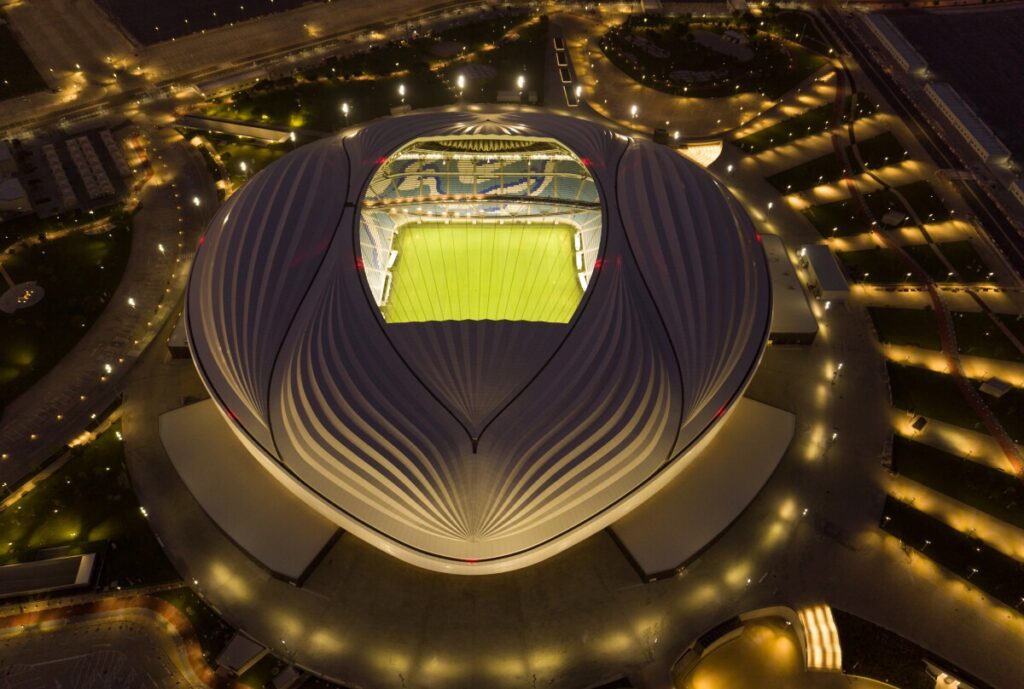
Al Bayt Stadium
Capacity: 68,895
Location: Al Khor
Matches: 2 group matches, 1 Round of 16, 1 Quarter-final
The 68,895-capacity arena in the northern city of Al Khor, which hosted the opening match and FIFA World Cup 2022 fixtures up to the semi-finals, is a unique sight for fans. Covered by a giant tent structure, this stadium offers an unprecedented experience. Located just 35km north of Doha, Al Khor, renowned for pearl diving and fishing, attracted desert-dwelling people to its coastal charms.
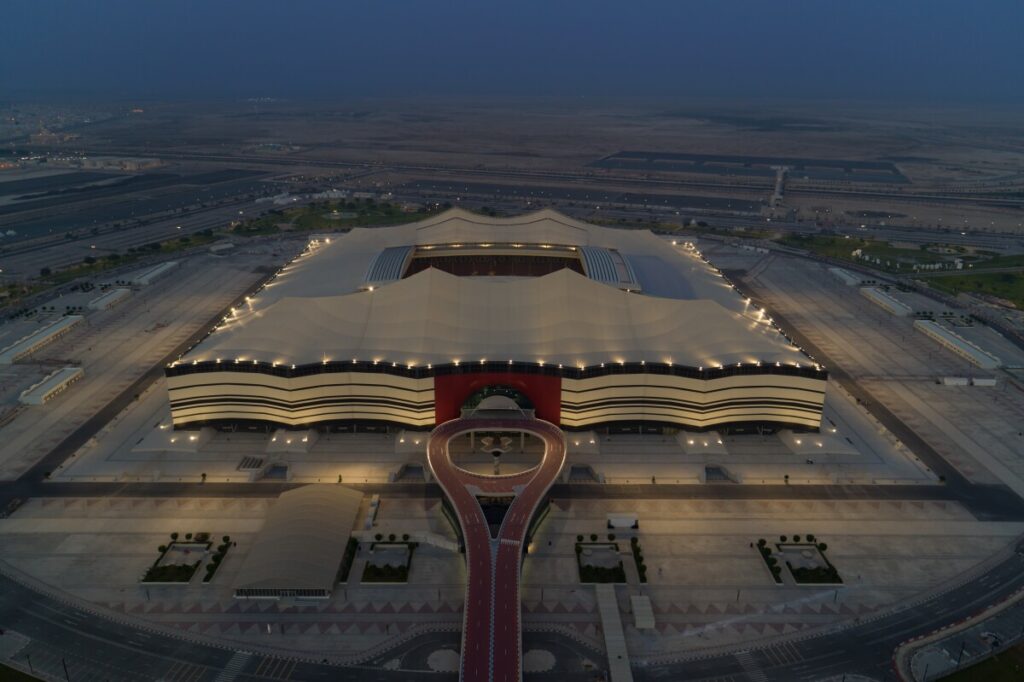
Jassim Bin Hamad
Capacity: 15,000
Location: Doha
Matches: 6 group matches, 1 Round of 16
The stadium, serving as the home to Al Sadd SC, played a significant role during the AFC Asian Cup Qatar 2011, hosting matches up to the quarter-final stage and the third-place playoff. It is a regular venue for prestigious football matches, including the 2014/2015 Italian Super Cup between Napoli and Juventus. With continuous development, the stadium boasts top-notch facilities for both teams and fans.
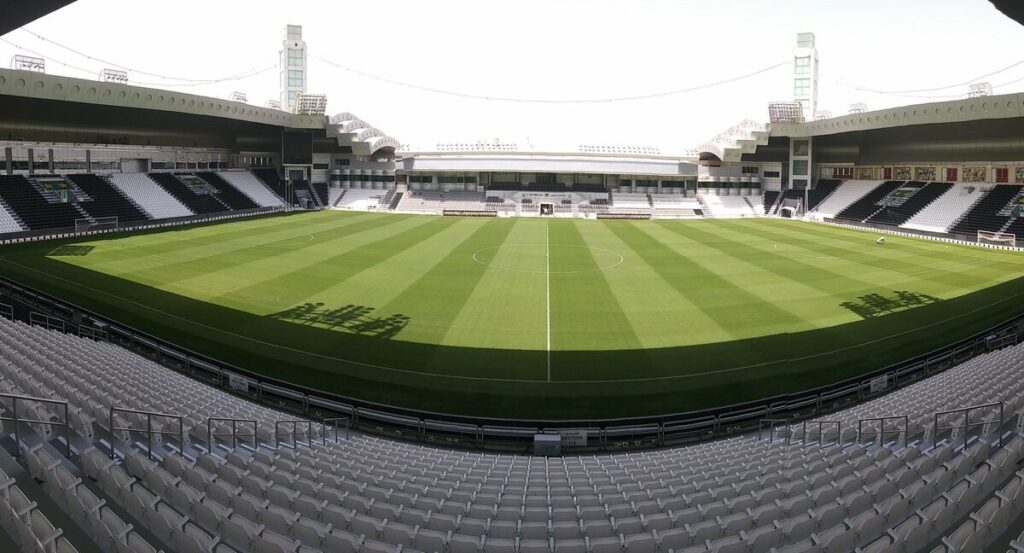
Education City Stadium
Capacity: 44,667
Location: Al Rayyan
Matches: 4 group matches, 1 Round of 16, 1 Quarter-final
Education City, a hub of knowledge and innovation, features a remarkable 44,667-seat stadium at its core. The completion of Education City Stadium on June 15, 2020, was celebrated with a special TV program, highlighting its readiness as the third venue for the FIFA World Cup Qatar 2022. This AFC Asian Cup stadium entertained fans with matches during the World Cup, extending up to the quarter-final stage.
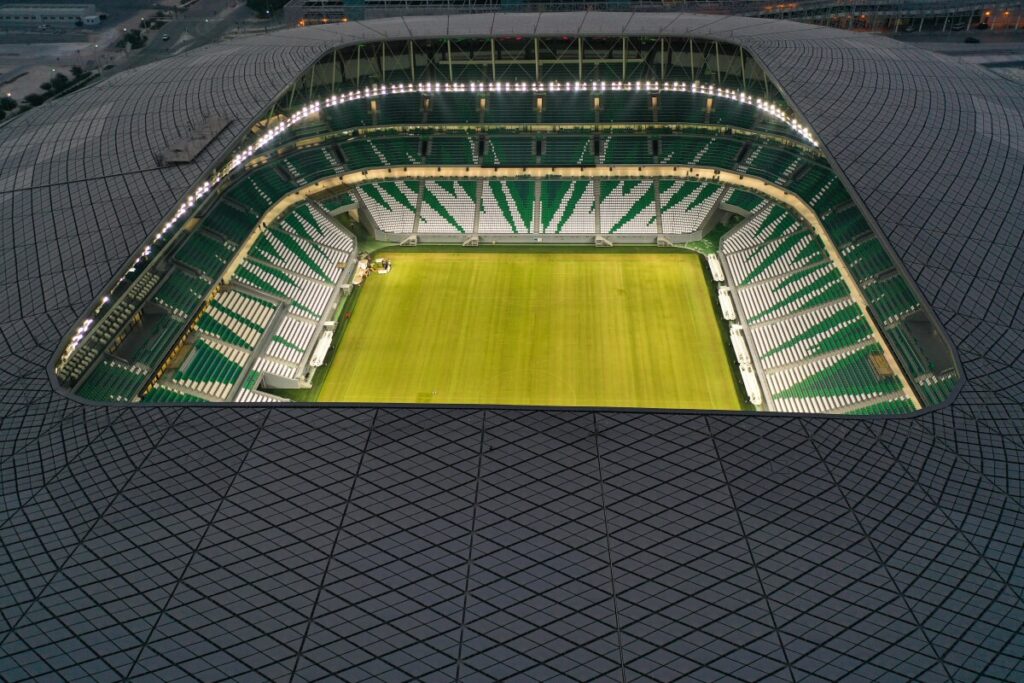
Al Thumama Stadium
Capacity: 44,400
Location: Doha
Matches: 4 group matches, 1 Round of 16, 1 Semi-final
Al Thumama Stadium, inaugurated during the 49th Amir Cup Final on October 22, 2021, holds special significance for Qataris. Situated 12km south of Doha, it hosted FIFA World Cup Qatar 2022 matches, including the quarterfinals. The stadium’s design, inspired by the traditional ghafiya woven cap, serves as a symbol of Qatar’s youth and cultural heritage.
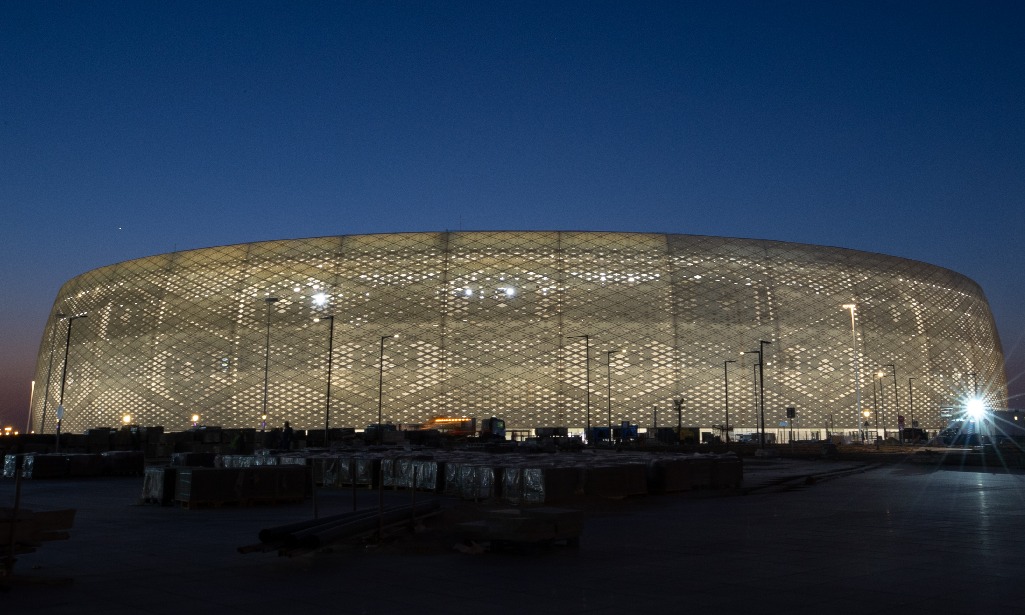
Abdullah Bin Khalifa Stadium
Capacity: 10,000
Location: Doha
Matches: 6 group matches, 1 Round of 16
The compact stadium, located in the Doha district of Duhail and serving as the home to Al Duhail SC, has hosted significant events, including the semi-final of the 24th Gulf Cup. It has been the venue for important domestic cup finals and hosted the 2016 AFC U23 Championship final.
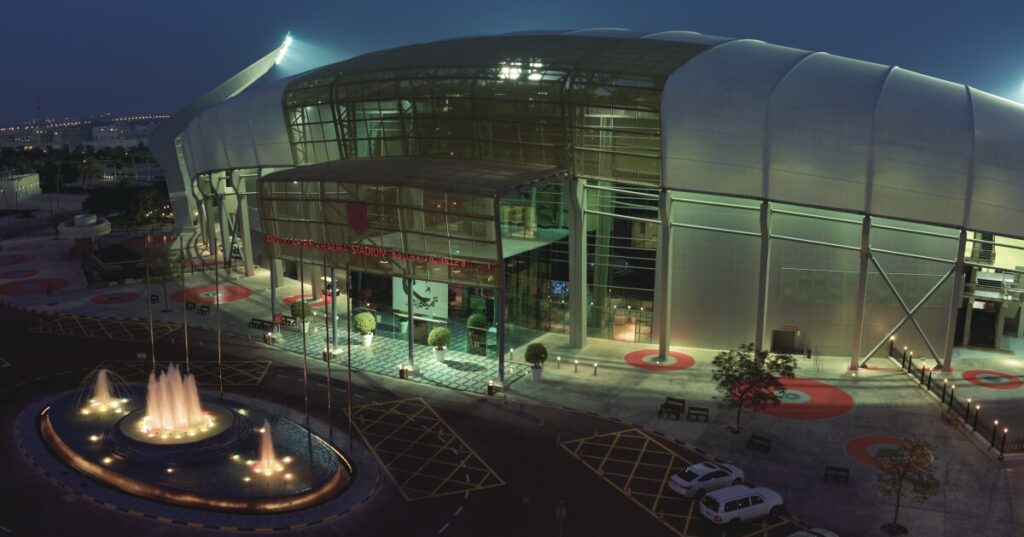
The Indian Team will play their group stage matches here:
Vs Australia (January 13, 2024): Ahmad Bin Ali Stadium, Al Rayyan (5:00 pm IST)
Vs Uzbekistan (January 18, 2024): Ahmad Bin Ali Stadium, Al Rayyan (8:00 pm IST)
Vs Syria (January 23, 2024): Al Bayt Stadium, Al Khor (5:00 pm IST)
NB: Details of the above-mentioned stadiums for the upcoming AFC Asian Cup have been taken from the official AFC Website.
For All Sports Updates: CLICK HERE



